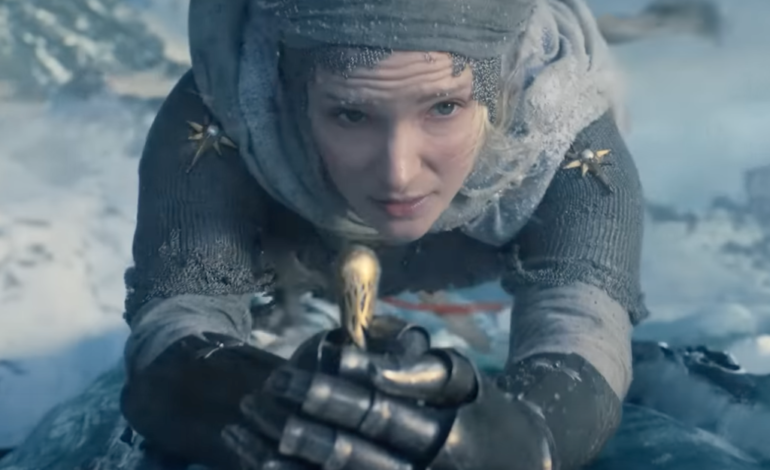

Amazon Prime’s highly anticipated new series The Lord of the Rings: The Rings of Power released its first two episodes on Thursday night that are both now available for streaming. Fans of both J.R.R. Tolkien’s novel The Lord of the Rings and Peter Jackson’s adaptation of this book into a film series, in particular, were excited to revisit Middle Earth – eager to learn if they could once again be thrilled by the fantasy and adventure that had captured them so many years ago.
The opening scenes involve the protagonist, Galadriel, an elf, played by Morfyrdd Clark (Saint Maud, Crawl) as a child, being taught a valuable life lesson from her brother Finrod, played by Will Fletcher (The Road Dance), in a time before the first sunrise. After some other children throw stones that sink her hand-made paper boat, Finrod consoles his little sister and tells her that rocks sink because they succumb to darkness while boats float because they stay focused on the light. When Galadriel remarks how even the dark sea can reflect light and asks how one can discern between the two, Finrod whispers a simple inaudible truth into her ear. Immediately from this conversation we are once again introduced to the theme of light and dark as parallels for the battle between good and evil. It seems wise not to stray too far from a previously successful formula. Being able to recognize darkness underpins the rest of the episode along with an irksome feeling that all is not well, stemming from peculiar happenings at every turn.
Galadriel continues with a brief voice-over that catches the audience up to the present. In summary, Morgoth destroyed the light of the elves’ utopian lands, causing them to venture in to Middle Earth for War. Finrod is killed in his failed attempt to hunt and defeat Sauron, the figurehead leader of Morgoth, and Galadriel takes it upon herself to finish his mission. She spots Sauron’s mark, which appears not too dissimilar to a trident, on her brother’s corpse. In the present, she spots this same mark on her journey north hunting Sauron. She has led her group well beyond their original mission and they dismiss the mark before telling her that if she is to continue, she would do so alone.
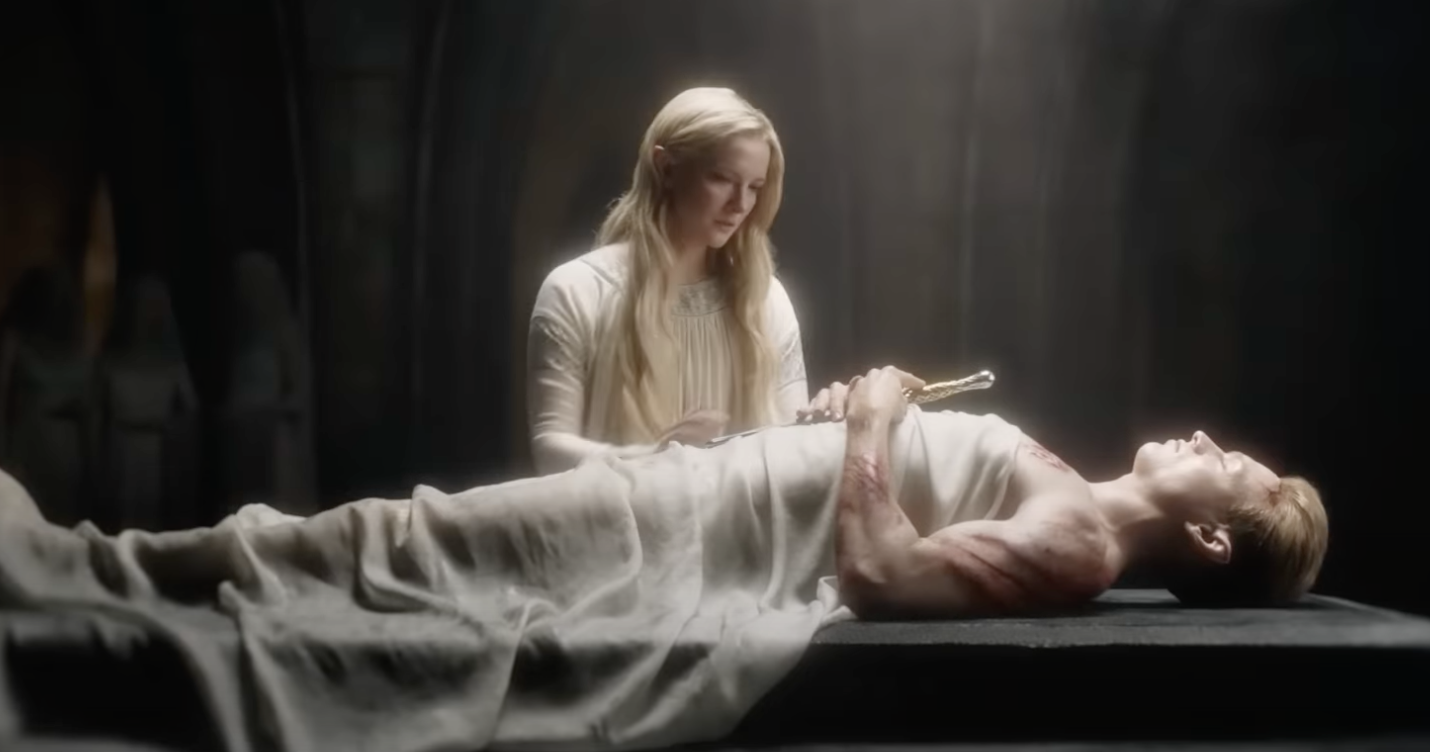

The show then introduces the Harfoots, the most captivating of which is Markella Kavenagh (My First Summer, Picnic at Hanging Rock) as Elanor “Nori” Brandyfoot. Nori is an adventurous soul with a penchant for mischief who very nearly finds herself responsible for feeding her friends to a menacing wolf. She is encouraged by her father and warned by her mother, who both admire the purity of her aspirations.
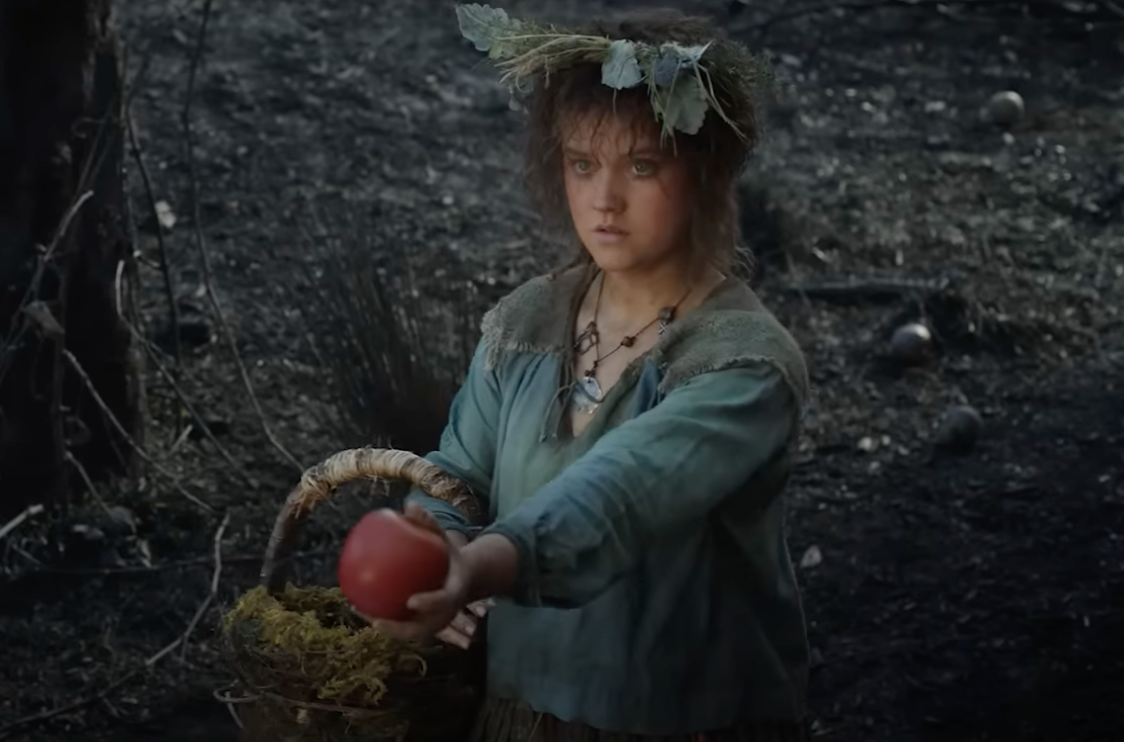

The final conflict we are introduced to involves Arondir, an elf, portrayed by Ismael Cruz Cordova (In the Blood, Mary Queen of Scots), Bronwyn, a human, depicted by Nazanin Boniadi (Homeland, How I Met Your Mother), and finally her also human son, Theo, played by Tyroe Muhafidin (Dusk, Caravan). Their racial differences set the undertone for the tension in “The Southlands”. Disgusted gossip surrounds the relationship between Arondir and Bronwyn, which they hide as best they can. Arondir and the other elves monitor the men and women in “The Southlands” and receive payback in the form of lies and racial slurs such as ‘knife-ears’. The show effectively expands upon the racial tension that is hinted at in the original trilogy during conflicts between Men, Elves, and Dwarves. In these scenes, it appears far more sinister, harmful, and holistic in its portrayal. Arondir chooses to go with Brownywn to follow a lead towards an unknown evil instead of joining the rest of his troops (who have been relieved of their vigil duties). Arondir brings up Brownywn’s heritage and the rumors surrounding her ancestors’ allegiances to Sauron, not to accuse her or her family in any way, but rather to suggest that she is going to play a key part in revisiting these lands. Their connection and passion power through in a complicated setting and time. They find her family lands burning.
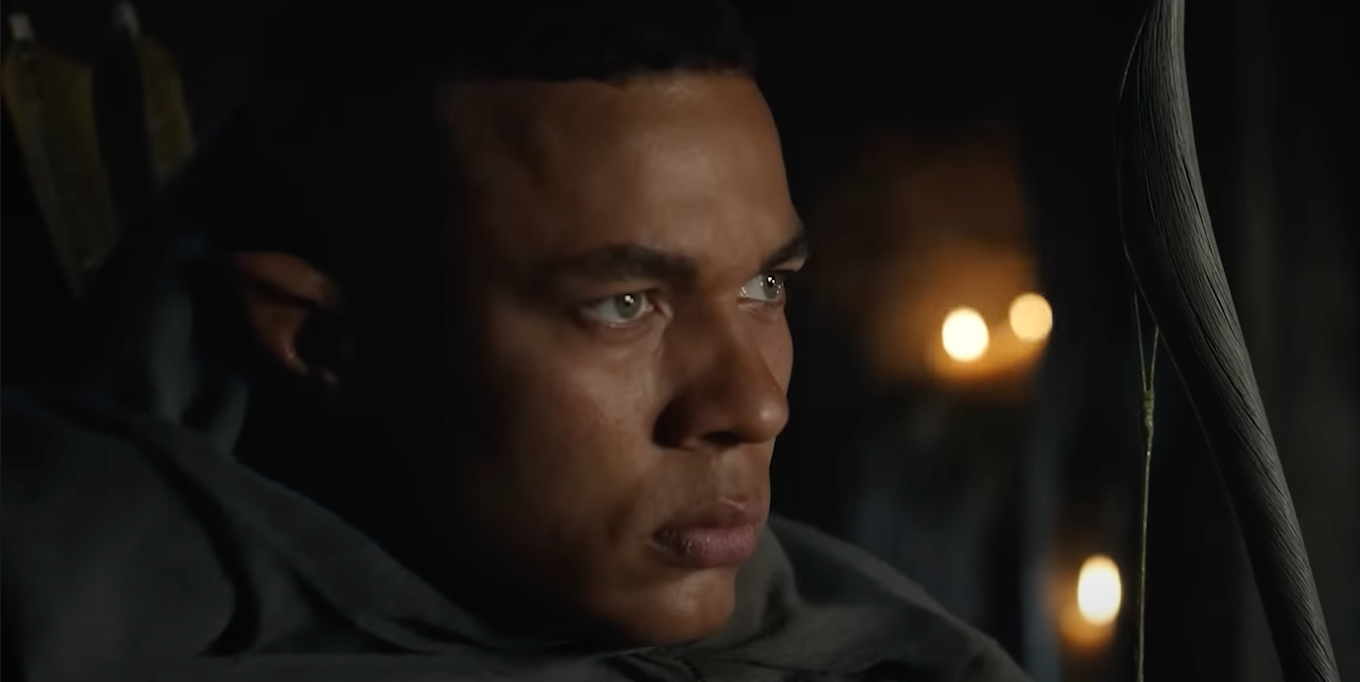

Back with Galadriel and she has listened to the familiar character of Elrond, who’s played by the bubbly Robert Aramayo (Game of Thrones, Behind Her Eyes). They have possibly the most intriguing argument of the episode in which each of their positions is entirely understandable. She wants to continue her mission. He wants her to let go of an obsession that may well exist out of necessity rather than fact. The audience is rooting for Galadriel, who has reasons for her actions, admirable strength, and determination. But also, Elrond is making a fair argument that her thirst is unlikely to be quenched. She agrees to go to a ceremony where she is rewarded with a trip back home to eternal life. It was slightly predictable that at the last moment she was going to abandon ship to continue with her obsessive mission. Her brother’s words are revealed. He talks about having to face the darkness to know it, and this surely played on Galadriel’s mind just as she abandoned the ship. While Galadriel lands in the water, Nori finds a meteor in the form of a human that can only spell exciting trouble ahead.
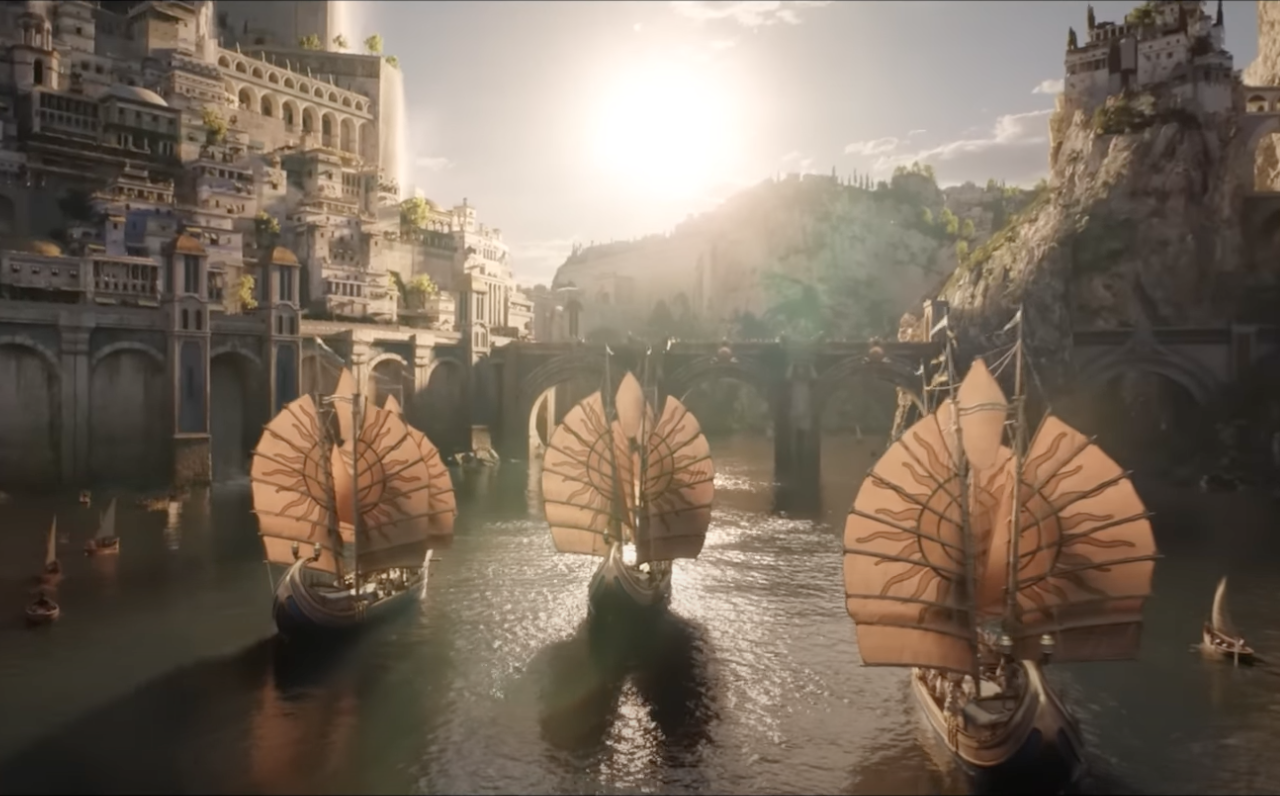

There was a lot of ground for the episode to cover and it certainly lost pace as a result. Most of the screen time was dedicated towards introducing characters and setting up their different predicaments, which might well be worth the temporal investment. Nori and the Harfoots seemed to have the most contrived conflict that never really came close to threatening the characters but rather was created for their introduction. The strong point of the episode was the inner conflict facing Galadriel. Keen-eyed viewers will have noticed a few subtle references to Galadriel and Finrod’s conversation throughout the episode. There were fireworks reflected in the water after she is falsely celebrated, and light mirrored in the sea during her sail back to Valinor. The iconic score of the original franchise was going to be tricky to follow up, but using similar instruments and sounds for each group kept things familiar and fondly reminiscent. The visuals of this episode were simply stunning at times, particularly the finer details of elven homes and ships, and there is certainly cause for excitement as we swoop over that familiar map into unfamiliar territory. The costumes overall were fantastic and seemed to develop effectively from their source inspiration, only the hunters and their odd antler shields seemed out of place. The orcs, trolls, and flash of ents looked better than ever. It is too early to judge the ambitious return of The Lord of the Rings, but from the opening episode, the anticipation appears justified.
Rating: 7.0/10
